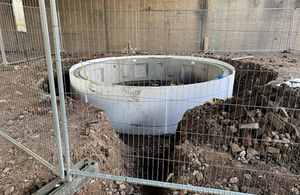Supporting safer recruitment in the early years and education sector
News story
The DBS ‘Making Recruitment Safer’ campaign promotes the support available from our Regional Outreach service.

The Disclosure and Barring Service (DBS) has launched the latest stage of the ‘Making Recruitment Safer’ campaign. This stage of the campaign is aimed at the early years and education sector, and highlights the range of free advice and training available to organisations of all sizes. Advice and training ranges from covering DBS checks and eligibility, to the legal duty to make a barring referral, and how to make a referral.
DBS has teamed up with partner organisations in early years and education who have previously benefitted from DBS support, to help promote the campaign to other employers in the sector. Partners include Early Years Wales, PACEY – the Professional Association for Childcare and Early Years, Estio Training, and EMP.
The ‘Making Recruitment Safer’ campaign initially launched in June 2022 and has previously targeted charity and faith sectors.
Eric Robinson, CEO of DBS, said:
DBS performs a vital role in helping to protect children, young people, and vulnerable adults by supporting employers to make safer recruitment decisions. We are pleased to launch our new campaign with the early years and education sector to highlight the free training and advice we can provide to organisations through our Regional Outreach service.
This service provides organisations with a single point of contact for all DBS-related queries and questions, as well as the opportunity to access tailored, DBS training for their staff and volunteers. The team also collates feedback to ensure future improvements can be made to DBS services and processes.
Find out more about the campaign on social media by searching #DBSMakingRecruitmentSafer.
More information about DBS’ Regional Outreach service can be found in our outreach guidance.
Published 8 August 2022


